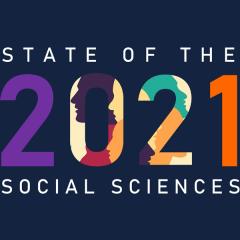Obstructive sleep apnoea (OSA) is a condition in which breathing stops involuntarily for brief periods of time during sleep. As such, OSA is a potentially serious sleep disorder that affects 936 million individuals globally, and is associated with excessive daytime sleepiness, impaired vigilance, motor vehicle crashes, and reduced quality of life, and has been implicated in cardiovascular disease and dementia. In Australia, OSA is currently diagnosed in almost 25% of the 30-69-year-old population.
 Despite its significance, current metrics used to diagnose OSA, including the apnoea-hypopnea index (AHI), are not very good at explaining patient symptoms such as daytime sleepiness and cognitive impairment. For example, two people with the same AHI score could experience very different symptoms, with one experiencing significant daytime sleepiness, and the other not. As such, current measures of assessing and diagnosing OSA severity do not necessarily reflect people’s everyday experiences.
Despite its significance, current metrics used to diagnose OSA, including the apnoea-hypopnea index (AHI), are not very good at explaining patient symptoms such as daytime sleepiness and cognitive impairment. For example, two people with the same AHI score could experience very different symptoms, with one experiencing significant daytime sleepiness, and the other not. As such, current measures of assessing and diagnosing OSA severity do not necessarily reflect people’s everyday experiences.
New approaches are needed and ISSR researchers are working on this through new research funded by the National Health and Medical Research Council (NHMRC) under its Ideas Grant scheme. Professor Simon Smith and Dr Cassandra Pattinson, in collaboration with the lead researchers at UQ’s Faculty of Engineering, Architecture and Information Technology, are using what we currently know about physiological symptoms of OSA to develop statistical algorithms to predict OSA symptom severity. Artificial intelligence through machine learning will be used to develop an automatic screening process to diagnose patients in accordance with their symptom severity.
This emerging research will have immediate and wide-reaching scientific and clinical impacts and it is expected to lead to new understandings about which OSA severity characteristics are associated with impaired daytime vigilance and sleepiness. Furthermore, by automating diagnosis, the research will lead to more comparable, reproducible and detailed scoring, which will greatly improve the assessment and diagnosis of OSA.
The ISSR team: Professor Simon Smith, Dr Cassandra Pattinson
Partners: UQ (EAIT lead), PA Hospital, University of Eastern Finland.



